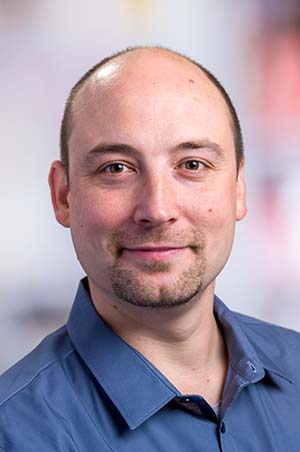Mark Headley, PhD
Assistant Professor
Translational Science and Therapeutics Division, Fred Hutch
Member
Immunotherapy Integrated Research Center (IIRC), Fred Hutch
Dr. Mark Headley studies the cellular and molecular dynamics that underlie tumor metastasis, the spread of cancer cells from a primary tumor to distant organs. His lab focuses on understanding how interactions between tumor and immune cells promote or defend against metastasis. Dr. Headley is especially interested in understanding lung cancer metastasis. He has developed a suite of cutting-edge tools to enable these studies. His lab uses advanced microscopes and surgical techniques to directly visualize, in real time, tumor cells and immune cells in live lungs. These tools enable the study of the unique lung environment during tumor metastasis with unprecedented detail by pairing this unique microscopy approach with high-resolution, single-cell profiling.
Other Appointments & Affiliations
Faculty Member, Molecular and Cellular Biology Program, University of Washington/Fred HutchFaculty Member, Molecular and Cellular Biology Program
University of Washington/Fred Hutch
Education
2016 – 2018, Associate Specialist, University of California, San Francisco
2011 – 2016, Post-doctoral Fellow, University of California, San Francisco
2010 – 2011, Post-Doctoral Fellow, Benaroya Research Institute
2010, PhD in Immunology – University of Washington School of Medicine
Research Interests
Dr. Headley has recently identified a unique process by which burgeoning metastatic cells shed large cytoplasmic particles from the earliest moments of metastasis. These particles, known as cytoplasts or microparticles, form a platform for engaging a particular class of immune cells called myeloid cells. Notably, during the first hours of metastasis, particular myeloid cells with protumoral properties (macrophages) versus anti-tumoral properties (dendritic cells and patrolling monocytes) encounter and ingest the tumor-derived particles. Dr. Headley seeks to understand how this particular facet of immune-tumor engagement defines anti-tumor immune responses and patient outcomes. His findings will be critical to designing new therapies that can debilitate prometastatic myeloid cell functions while enhancing anti-tumor functions, thereby saving more lives.
